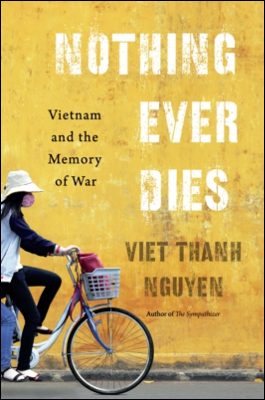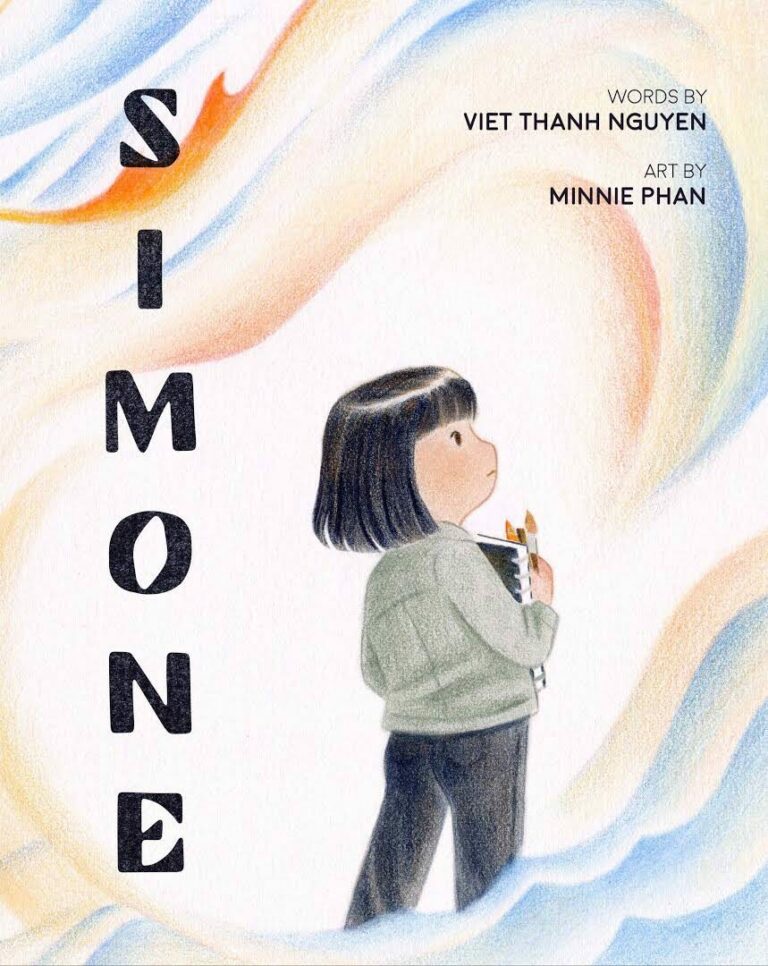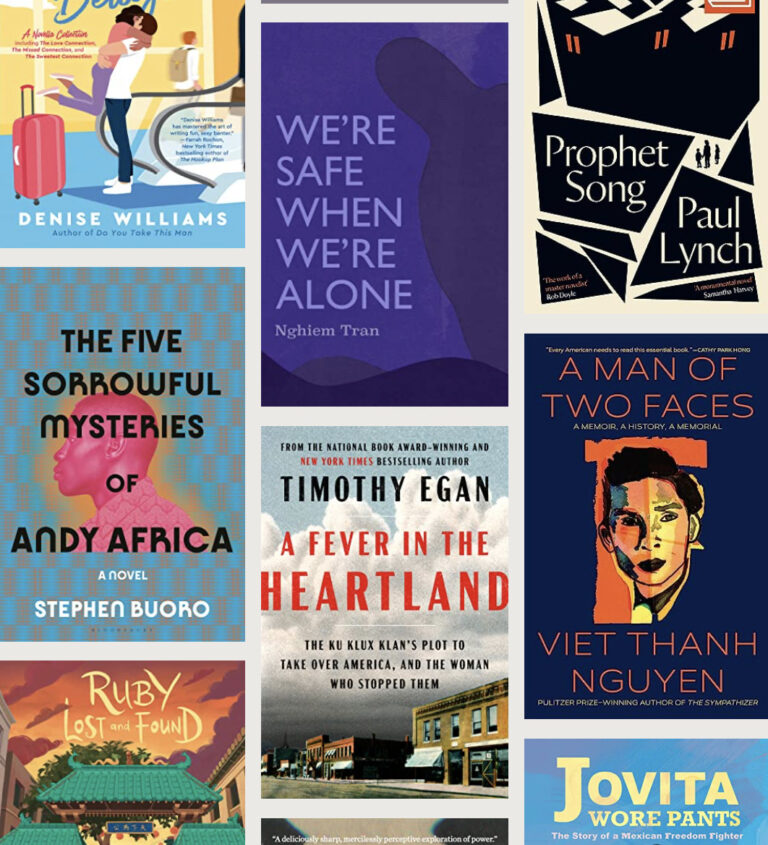Viet Thanh Nguyen’s “Nothing Ever Dies: Vietnam and the Memory of War” nominated as a nonfiction finalist in the 2016 National Book Critics Circle. Kate Tuttle reviews the five nonfiction finalists. Originally published by The Los Angeles Times.

Next month, the National Book Critics Circle will present its 2016 book prizes in six categories; these are the five finalists in nonfiction. Each book deserves to be read for years to come, but every one of them seems to speak urgently about this particular moment — a time of economic inequality and political turmoil, and of new attention to long-simmering conversations about race, history and violence.
“Evicted: Poverty and Profit in the American City”
Matthew Desmond
Crown: 432 pp., $28
“Even in the most desolate areas of American cities, evictions used to be rare,” Matthew Desmond writes. “They used to draw crowds.” Even in the worst years of the Depression, far fewer people were evicted from their homes than are today (one in eight renting families nationwide, the author says). Desmond, a sociologist at Harvard, looks at the rise in evictions as both a public and private disaster — a cataclysm for each family being evicted, a symptom of an economy plunging into ever deeper inequality. Here, he immerses himself in the lives of eight families in Milwaukee, all of them reeling from eviction and its rippling after-effects. “Losing a home sends families to shelters, abandoned houses, and the street,” he writes. “It invites depression and illness, compels families to move into degrading housing in dangerous neighborhoods, uproots communities, and harms children. Eviction reveals people’s vulnerability and desperation, as well as their ingenuity and guts.”
Desmond renders their heartbreaking stories in clear and plainspoken prose. Tenants move into apartments beset with mold, mildew and insects. Evicted, they lose everything: clothing, furniture, photographs. Finding another place, especially with young children, is nearly impossible. “America is supposed to be a place where you can better yourself, your family, and your community,” he writes. “But this is only possible if you have a stable home.” The people whose lives he chronicles here have lost that anchor, and some of their struggles and mistakes are nearly unbearable to read about. Still, Desmond reminds us, “[p]overty has not prevailed against their deep humanity.”
“Stamped From the Beginning: The Definitive History of Racist Ideas in America”
Nation Books: 596 pp., $32.99
“I was taught the popular folktale of racism: that ignorant and hateful people had produced racist ideas, and that these racist people had instituted racist policies,” writes Ibram X. Kendi in the preface to his monumental study of the history of racism. But, he argues, we are confusing cause and effect, misunderstanding the way the mechanism works. Racism isn’t rooted in hatred, it’s an idea used to spawn hate — as a cover and a justification for “economic, political, and cultural self-interests,” from European dreams of empire to America’s need to justify slavery, Jim Crow and mass incarceration.
Blending deep research and analysis with a powerfully intimate and personal voice, Kendi lays out the stakes at the book’s very beginning: “Every historian writes in — and is impacted by — a precise historical moment. My moment, this book’s moment, coincides with the televised and untelevised killings of unarmed human beings at the hands of law enforcement officials….” Kendi grounds his argument in the present moment, citing the killing of Trayvon Martin and the birth of Black Lives Matter as “heartbreaks that are a product of America’s history of racist ideas” — a history he then narrates through the lives and works of five individuals: Cotton Mather, Thomas Jefferson, William Lloyd Garrison, W.E.B. DuBois and Angela Davis. By anchoring the book on these five historical figures — each of them brilliant, complicated and fascinating — Kendi renders this work of intellectual history as compelling as the juiciest biography.
“Dark Money: The Hidden History of the Billionaires Behind the Rise of the Radical Right”
Jane Mayer
Anchor: 576 pp., $17 paper
Sometimes conspiracy theories are true. In Jane Mayer’s extensively researched, masterfully written “Dark Money,” she traces the multi-generational story of “a small, rarefied group of hugely wealthy, archconservative families that for decades poured money, often with little public disclosure, into influencing how Americans thought and voted.” The book expands on a 2010 New Yorker article on the Koch brothers, Republican kingmakers from Wichita, Kan., and it digs even deeper into the web of think tanks, publications and other institutions founded and financed by the Kochs and others (including the DeVos family, in-laws of the new secretary of education).
The two prominent Koch brothers — Charles, 81, and David, 76 — inherited a vast family fortune their father had built on gas and oil (including work he did for Hitler’s government in the late 1930s). Passionate about protecting their financial interests, influenced by rabidly anti-government ideas, they briefly tried electoral politics (David ran for vice president on the 1980 Libertarian Party ticket, which got 1% of the vote), but found it more effective to “[use] their fortune to impose their minority views on the majority by other means.” For the Kochs, this meant donating hundreds of millions of dollars, “to weaponize their philanthropic giving in order to fight a multifront war of influence over American political thought.” Mayer follows the money as it funds countless battles against taxes, environmental regulation, labor unions, scientific research and civil rights efforts.
The paperback edition, just published, contains a new preface updating the story in light of the election of Donald Trump. It’s impossible to avoid the impression that the new president stands as a kind of end result of the long history Mayer recounts; for readers distressed by Trump’s victory and the early days of his administration, this book will feel both revelatory and unbearable.
“Nothing Ever Dies: Vietnam and the Memory of War”
Viet Thanh Nguyen
Harvard University Press: 384pp., $27.95
“This is a book on war, memory, and identity. It proceeds from the idea that all wars are fought twice, the first time on the battlefield, the second time in memory,” writes Viet Thanh Nguyen in this gorgeous, multifaceted examination of the war Americans call the Vietnam War — and which Vietnamese call the American War (“this war suffers from an identity crisis,” he remarks). Nguyen, born in Vietnam and raised in the United States, is a professor at USC, one of The Times’ Critics at Large and winner of the Pulitzer Prize for his 2015 novel, “The Sympathizer.” As a writer, he brings every conceivable gift — wisdom, wit, compassion, curiosity — to the impossible yet crucial work of arriving at what he calls “a just memory” of this war.
Art is one way to look at and begin to construct a way to remember a war, and Nguyen is a smart critic of the jingoism, sentimentality and other sins of the American film industry in looking at Vietnam. He expands the conversation to include movies from Korea, which had its own Vietnam War, and to the war memorials erected throughout Southeast Asia. In looking at the literature inspired by the war, he ponders just what makes a “good” war story. As intellectually sophisticated as Nguyen’s work is, it’s also intensely personal. He ends his book lighting incense at his grandfather’s tomb, thinking of how his own father refuses to discuss the war. “Perhaps some things will never be remembered,” he writes, “and yet also never forgotten.”
“Writing to Save a Life: The Louis Till File”
John Edgar Wideman
Scribner: 208 pp., $25
John Edgar Wideman’s “Writing to Save a Life” begins as the author’s attempt to grapple with the story of Emmett Till, the 14-year-old Chicago boy murdered in Mississippi in 1955. Wideman was 14 himself, growing up in Pittsburgh, when he saw the photographs of Till’s mutilated face and bloated corpse, published in the pages of Jet magazine at the request of his mother. Reading about the trials of Till’s killers, Wideman stumbled upon a mention of Louis Till, Emmett’s father, “conjured like an evil black rabbit from an evil white hat,” himself killed in Italy in 1945, hanged by the United States Army, in which he served.
What follows is an act of literary conjuring, an intensely imagined and deeply felt speculative biography, an impressionistic examination of black boyhood and manhood. Wideman imagines the elder Till in the military prison, perhaps jailed near enough to Ezra Pound to work his way into the poet’s writings. Wideman, who has written in memoirs about his brother and his son, both of whom were imprisoned for murder, here works in a hybrid mode — quasi-fictional accounts of Louis, Mamie and Emmett Till’s experiences, blended with lyrical memories of his own summer in 1955. He saw Emmett’s face in Jet, he made love for the first time, he watched his boxer father for clues about black manhood. The adult Wideman, pondering the Till file he’s sent away for, finds it full of lies, then looks at it another way. “The file writes fiction,” Wideman says. “To mimic reality, the Till file writes fiction.”
Tuttle is a member of the board of the National Book Critics Circle and founding director of the Decatur Writers Studio.


